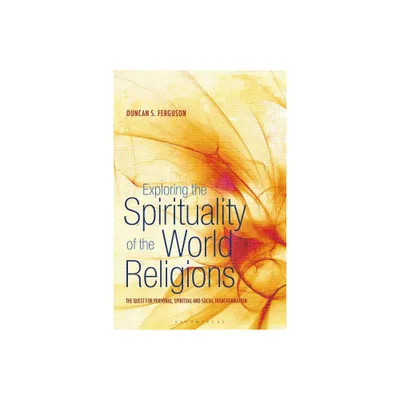Home
The Call of the Spirit: Process Spirituality in a Relational World
Loading Inventory...
Barnes and Noble
The Call of the Spirit: Process Spirituality in a Relational World
Current price: $20.00


Barnes and Noble
The Call of the Spirit: Process Spirituality in a Relational World
Current price: $20.00
Loading Inventory...
Size: OS
*Product Information may vary - to confirm product availability, pricing, and additional information please contact Barnes and Noble
In a process-relational world, to love God is to be swept up into God's own love for the world. It is to become a participant in God's great compassion. To develop spirituality in this relational world of ours is to develop the habit of attentiveness to the call of the Spirit, which will lead us ever more deeply into lives that are marked by compassion of God.
These nine essays form an integral whole, combining a careful analysis of relational dynamics with very practical suggestions for personal and communal ways of intensifying our spirituality. The essays flow from the wellsprings of spirituality in each of our authors; they are "lived" essays, and not simply theoretical discussions. To read the essays, then, is to be invited into the privilege of seeing how the call of the Spirit has been answered in each of these three lives. One can join with them by reading this book meditatively, reflecting on one's own responses to the issues named. But one can also read this book as a kind of manual, giving tested instruction for persons and for communities to focus intentionally on increasing our spiritual awareness. In this sense, then, perhaps the book functions according to its apt title-it may, indeed, represent for us the call of the Spirit.
Marjorie Hewitt Suchocki, Professor Emerita, Claremont School of Theology
These nine essays form an integral whole, combining a careful analysis of relational dynamics with very practical suggestions for personal and communal ways of intensifying our spirituality. The essays flow from the wellsprings of spirituality in each of our authors; they are "lived" essays, and not simply theoretical discussions. To read the essays, then, is to be invited into the privilege of seeing how the call of the Spirit has been answered in each of these three lives. One can join with them by reading this book meditatively, reflecting on one's own responses to the issues named. But one can also read this book as a kind of manual, giving tested instruction for persons and for communities to focus intentionally on increasing our spiritual awareness. In this sense, then, perhaps the book functions according to its apt title-it may, indeed, represent for us the call of the Spirit.
Marjorie Hewitt Suchocki, Professor Emerita, Claremont School of Theology


















